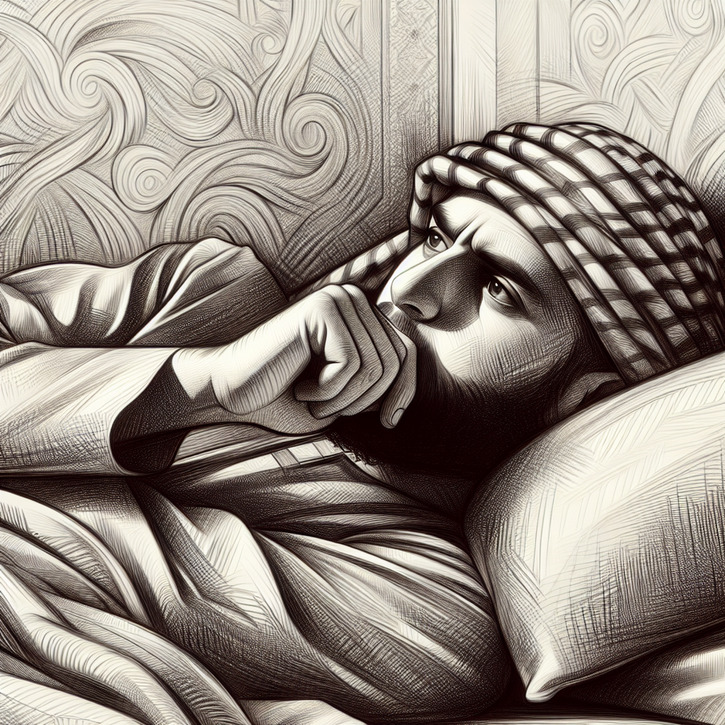Dealing with Sleep Issues: Emotional and Physical Struggles

Getting to Know Sleep Issues: What’s Really Going On?
Ever feel like tossing and turning isn’t just a one-off night, but a recurring challenge that messes with your whole day? Sleep troubles are about a lot more than just a restless night—they’re a multifaceted issue that many of us grapple with daily. These problems, whether it’s struggling to drift off or waking up multiple times, reach far beyond blurring the line between day and night. In this fast-paced world, our sleep can easily fall victim to stress, lingering screen time, or even our ever-changing routines. Stick with me as we unpack the challenges behind sleep issues, mixing firsthand experiences with expert insights, and explore not just the physical interruptions, but the emotional toll too.
So, What Exactly Are Sleep Issues?
At its core, sleep issues simply mean any hiccups or disturbances that stop you from catching that deep, rejuvenating sleep. It doesn’t matter if it’s the struggle to fall asleep, staying asleep, or hitting that much-needed deep sleep phase; it all counts. These issues can range from a bit of daytime crankiness to serious mental and physical struggles. Recognizing these hiccups is a vital first step, helping you pinpoint patterns that might be throwing your sleep off balance and consider solutions to get your nights back on track.
How Do You Know if It’s More Than Just a Rough Night?
Sometimes, sleep issues sneak up on you, blending in with everyday stress. If you find yourself constantly battling fatigue, having trouble focusing, or feeling off mood-wise, it might be more than a bad night’s sleep. Others notice even subtler signs like recurring irritability or feeling wired when you should be winding down. And sometimes, it even comes with physical hints like discomfort or a more sensitive reaction to pain. While these symptoms can overlap with other health concerns, catching them early could prevent deeper problems down the line.
Different Cultures, Different Takes on Sleep
Ever notice how some cultures treat sleep like a sacred ritual, while others seem to throw it out the window in favor of non-stop productivity? In some parts of the world, a good night’s sleep is considered a cornerstone of overall health—mental, physical, even spiritual. Yet in our modern hustle, you might hear someone say, “I’ll sleep when I’m dead!” These varied attitudes not only shape our personal habits but also influence how societies tackle sleep issues. It goes to show, sleep is as much a cultural statement as it is a biological need.
The Emotional Rollercoaster of Sleep Issues
When Stress and Anxiety Take Center Stage
There’s nothing like the frustration of battling insomnia to spark a whole storm of stress and anxiety. Missing out on a full night’s sleep can kick off a vicious cycle where the stress of lack of rest makes it even tougher to fall asleep again. It’s like being trapped in an endless loop; work pressure, personal worries, and a racing mind all spiral into one. The first step in breaking free is acknowledging just how much sleep issues are feeding into your stress. Whether it’s a chat with someone you trust or seeking professional advice, talking it out can really help turn the tide.
Impact on Your Mood and Relationships
Ever noticed how a bad night’s sleep can leave you snapping at loved ones or struggling with little tasks? When you’re sleep-deprived, even the smallest challenges can feel overwhelming, often straining your relationships. Without that essential rest, it’s tough to manage your emotions, and that can lead to misunderstandings or even frustration with friends, family, or partners. Over time, this can push you to withdraw from social life, deepening those feelings of isolation. In tackling sleep issues, you’re not just looking after your body—you’re nurturing your mood and even your relationships, paving the way for a happier, more balanced life.
Breaking the Cycle of Emotional Drain
Emotional burnout and sleep issues are notorious for feeding off each other. When you’re drained emotionally, it can throw your body’s natural sleep rhythm out of whack, making it near impossible to get that restorative sleep. And then, of course, the worry about not getting enough sleep just makes things worse. Recognizing this cycle is crucial—it’s about finding a balanced approach that tackles both the mental strain and the tiredness. Whether it’s through counseling, mindfulness practices, or tweaking your lifestyle, small changes can help break this exhausting loop and set you on the path toward better mental health and sleep.
Caring for Your Body When Sleep Isn’t Enough
The Fatigue Factor: When Your Energy Takes a Hit
One of the first signs that your body isn’t getting enough sleep is that overwhelming fatigue that just won’t quit. Sleep is like fuel for your body, and when it’s in short supply, everything seems harder. From everyday decisions to bigger challenges, that energy slump can really mess with your mojo. If fatigue becomes your new normal, it’s a clear sign that your sleep is off track and your body is crying out for a reset.
Sleep Problems and Chronic Pain: A Two-Way Street
There’s a tricky connection between sleep and chronic pain. For many, a rough night’s sleep can lower the threshold for pain, and persistent pain can make it tough to get the sleep you need. This back-and-forth can leave you caught in a seemingly never-ending struggle, where sleeplessness amplifies your discomfort and vice versa. Whether it’s arthritis, muscle aches, or migraines, understanding this link is key to finding a balanced approach that addresses both the pain and the lack of sleep.
Long-term Worries: The Toll of Chronic Sleep Issues
Beyond the tiredness and pain you feel day-to-day, prolonged sleep issues can pave the way for bigger health problems. Experts warn that consistently poor sleep might set the stage for issues like heart disease, diabetes, or even a weakened immune system, making you more prone to falling ill. These potential long-term outcomes serve as a strong reminder that good sleep isn’t a luxury—it’s essential for keeping your overall health in check.
Digging Deeper: What’s Behind Your Sleep Struggles?
Everyday Habits That Sabotage Sleep
In our modern lives, it’s easy to fall into habits that stand in the way of a good night’s sleep. Extended screen time, irregular sleep schedules, and sky-high stress levels can all throw your sleep pattern off balance. With busy workdays and little time to just unwind, sleep often takes a back seat. Recognizing that these habits contribute to your sleep troubles is the first step toward making simple lifestyle tweaks that could transform your nights.
When Your Environment and Actions Don’t Add Up
Sometimes, it’s not what you do, but where you do it. Noisy surroundings, uncomfortable bedding, or an erratic bedtime routine can really throw off your sleep. Even everyday behaviors—like taking long naps, guzzling caffeine late in the day, or drowning in screen time—can make it tough for your mind and body to settle into sleep mode. By taking a closer look at your environment and habits, you might uncover small tweaks—like creating a calming bedtime ritual—that can make a big difference.
Turning Things Around: Practical Tips for Better Sleep
Stick to a Sleep Routine That Works for You
One tried-and-true way to beat sleep issues is by setting up a routine. Try going to bed and waking up around the same time every day, even on weekends. This consistency helps set your body’s internal clock, easing the transition into sleep mode. Maybe add some wind-down rituals—like reading, meditating, or soaking in a warm bath—to cue your brain that it’s time to chill. With a few regular tweaks, you can gradually realign your natural rhythms and make those sleepless nights a thing of the past.
Ease Into Sleep With Mindfulness and Relaxation
Ever given mindfulness a shot? Techniques like meditation, deep breathing, or gentle yoga can make all the difference before bed. These practices help calm your racing mind and ease the transition into sleep. Even a few minutes of focused relaxation can dismantle the barrage of thoughts that keeps you tossing and turning. It’s about finding that little moment of calm amid the chaos—one that can boost not only your sleep but your overall peace of mind.
Fueling and Moving Your Way to Better Sleep
What you eat and how you move plays a big role in your sleep quality. A diet packed with magnesium, tryptophan, and other sleep-friendly nutrients can help you wind down in the evening. Regular exercise, on the other hand, can relieve anxiety and keep your energy in check during the day—but try to steer clear of intense workouts right before bedtime. Fine-tuning your eating and exercise habits could be the secret recipe for turning those restless nights into refreshing sleep.
Exploring Treatment Options: From Medical Help to Natural Remedies
When to Seek Conventional Medical Help
Sometimes, lifestyle changes alone just don’t cut it, and that’s when conventional medical help comes into play. Medical professionals might suggest therapies like cognitive-behavioral therapy for insomnia or even recommend sleep aids on a short-term basis to help you regain control. Sure, every sleep pattern is unique, so it’s important to keep an open mind and work closely with an expert who can tailor treatments just for you. In many cases, these methods act as a bridge until you’ve built the healthier habits you need for a long-term change.
Alternative Approaches and Natural Remedies Worth Trying
Not a fan of relying solely on medication? Many people find comfort in alternative therapies like herbal supplements, aromatherapy, or even acupuncture and homeopathy. While results can vary from one person to another, these natural approaches often complement traditional treatments nicely. It’s always smart to have a chat with a specialist before diving into something new, but these options offer a holistic way to approach sleep issues—mixing the best of modern medicine with time-tested natural practices.
Crafting a Sleep-Friendly Haven
Designing Your Bedroom for Optimal Rest
Think of your bedroom as your personal sanctuary—a haven designed to help your body relax and recharge. Little tweaks like investing in a comfy mattress, blackout curtains, or even a cooling fan can really turn the tide on sleep issues. A neat, calming space free of distractions sets the stage for a smoother night’s rest. Adjusting the room temperature, cutting down on noise, and picking soothing colors might seem small, but these details can add up to a significantly better sleep experience.
Leveraging Technology to Enhance Your Sleep
While technology can sometimes be the culprit behind sleepless nights, it can also be your biggest ally. Today’s sleep apps and wearables offer useful features like sleep tracking, guided mindfulness exercises, and even ambient noise controls. Used wisely, these tools can provide valuable insights into your sleep patterns, helping you adjust your habits and environment accordingly. It’s all about finding that balance between the modern digital world and the timeless need for a good night’s sleep.
Wrapping It Up
Sleep issues aren’t just about feeling a bit groggy—they can impact every corner of our lives, from our mood to our overall health. By digging into the many factors behind these challenges—whether it’s our fast-paced lifestyles, the environment around us, or even our patterns of stress—we take the first step toward real change. Whether you decide to overhaul your routine, embrace relaxation techniques, or even seek professional help, every step you take towards better sleep is a stride towards a healthier, more fulfilled life. Remember, quality sleep is a cornerstone of well-being, and investing in it pays off in every aspect of your life.





